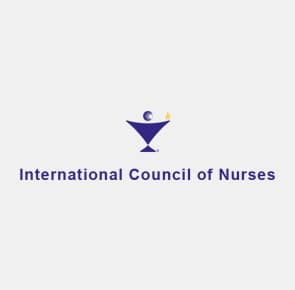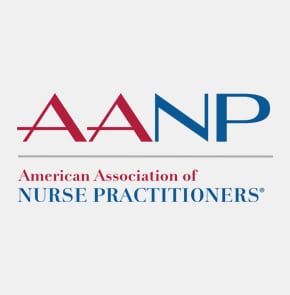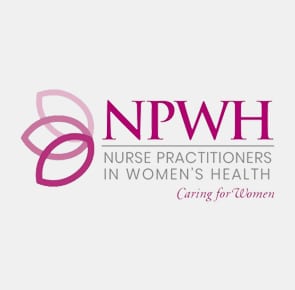Get Matched With Nurse Practitioner Programs
What Does a Career as a Nurse Practitioner Entail?
Are you considering a career as a nurse practitioner (NP)? If you think you are well-suited for coordinating medical patient care and providing healthcare services to others, this may be a wise vocational choice. If you become a nurse practitioner, you'll be able to work in a wide variety of settings as primary care nurses with a variety of specialties including surgical hospitals, physician offices, outpatient care centers, educational institutions, psychiatric mental health facilities, adult-gerontology acute care facilities, dentist offices, and more.
While nurse practitioners or advanced practice registered nurses are able to consult with physicians when needed, they frequently work independently as they provide advanced nursing services to patients and their families. Specific duties vary per state, but these professionals can usually assess patients, establish treatment plans, prescribe medications, and order laboratory tests. Other responsibilities may include the following:
Read More- Record medical histories
- Perform physical examinations
- Perform diagnostic tests
- Operate medical equipment
- Analyze exam results
- Evaluate patient responses to treatments
- Provide health advice to patients and their families

Components of a Successful Nurse Practitioner Career
Not everyone is well-suited for a career as a registered nurse (RN) or nurse practitioner. The profession is demanding and professionals are expected to possess and continually hone a number of important skills through clinical experience and nursing education. The most successful nurse practitioners have the following qualities:
- Communication skills that allow for clear and concise expression of information with patients and other healthcare professionals as needed
- Critical thinking skills that help discern possible changes in patient health and quickly assess the best possible course of action
- Compassion for others and the ability to express sympathy for patients who are in pain or emotionally distraught
- Detail oriented and responsible when providing treatment plans and medication prescriptions, as well as in perceiving even minor changes in patient conditions
- Interpersonal skills that allow for productive interactions with patients, patient family members, and other healthcare providers
- Leadership skills that help effectively lead and/or manage other staff members
- Resourcefulness necessary to find answers to healthcare questions in a timely manner
Those who are looking to become a nurse practitioner (NP) will still have plenty of options when it comes to deciding which specialties interest them most, including positions like the following:
- Advanced Practice Registered Nurse (APRN)
- Mental Health Nurse Practicioner
- Family Nurse Practitioner
- Acute Care Nurse Practitioner (ACNP)
- Primary Care Nurse Practitioner
- Adult-Gerontology Nurse Practicioner
Compare Popular Online Nurse Practitioner Programs
How to Become a Nurse Practitioner
Keep the following steps in mind as you begin pursuing a career as a nurse practitioner:
- Develop your interest in nursing
- Research institutions that offer accredited degree programs
- Earn an associate and/or undergraduate degree
- Register with the National Council of State Boards of Nursing
- Pass the NCLEX examination for registered nurses
- Obtain state licensure as a registered nurse
- Gain professional experience (often unnecessary with a bachelor’s degree)
- Enroll in a graduate degree - NP program
- Pass a national certification examination
- Obtain state licensure as a nurse practitioner
- Apply for further education or professional employment
Typical Nurse Practitioner Degree Requirements
At minimum, nurse practitioners must complete a Master of Science in nursing (MSN) program. While there are nursing programs at every level, including vocational training, it is impossible to become licensed and certified as a nurse practitioner without successfully completing a graduate-level education. Associate degrees can, however, help prepare you for further education. These programs typically take two years to complete and will help you gain nursing experience and choose from the many available specialties, such as primary care and mental health nurse practitioner positions. Undergraduate programs usually require a four year commitment and most graduate degrees can be earned in two years.
Find Your Online Nurse Practitioner Program
Typical Nurse Practitioner Certifications Needed
All nurse practitioners in the U.S. must be certified and licensed as both a registered nurse and a nurse practitioner before they can work professionally. While the required examinations for both titles are standardized, state licensure requirements vary. You will need to research the specific expectations in your area prior to applying for employment. In many cases, nurse practitioner programs design the curriculum to incorporate these certification processes.
Academic Standards for a Nurse Practitioner Degree
Whether you enroll in an associate degree in nursing or a Bachelor of Science in Nursing (BSN), your educational institution will have a number of academic standards you will be expected to meet. These expectations vary from school to school, but often consist of a code of conduct and a minimum grade point average (GPA) requirement.
As a student at your given college or university, you will need to conduct yourself appropriately both in and out of the classroom. Failure to adhere to the institution’s rules can result in probation, suspension, or even dismissal. Cheating and plagiarism are two examples of academic misconduct that may have dire consequences.
Additionally, you will be expected to maintain a certain GPA while enrolled. GPAs are measured on a 4.0 scale. Every college and university is different, but when a student’s GPA drops below a pre-designated point, they may be placed on probation. Failing to improve your GPA while on probation can result in suspension.
Exam / Experience Needed for a Nurse Practitioner Degree
 If you choose to first pursue an associate degree in nursing, you will need to acquire one to two years of professional experience prior to enrolling in a Master of Science in nursing (MSN) program. Additionally, when being licensed as a nurse practitioner through your state, you will need to pass two examinations:
If you choose to first pursue an associate degree in nursing, you will need to acquire one to two years of professional experience prior to enrolling in a Master of Science in nursing (MSN) program. Additionally, when being licensed as a nurse practitioner through your state, you will need to pass two examinations:
NCLEX for Registered Nurses
You must first submit a registered nurse licensure application to the board of nursing where you plan to work. Afterward, you will need to register for the examination online or via telephone. Your registration will expire after 365 days, so as long as your state licensure board approves your eligibility within this time period you will be permitted to sit for the examination. You will have six hours to complete the NCLEX examination, which has a 76% pass-rate.
Nurse Practitioner Specialty Examination
To become registered as a nurse practitioner, you will need to pass a certification examination. These are offered by a number of professional associations and vary depending on your chosen specialization. For example, the American Academy of Nurse Practitioners offers three examinations: Family Nurse Practitioner, Adult-Gerontology Nurse Practitioner, and Emergency Nurse Practitioner.
Individuals interested in becoming a nurse practitioner must first earn their credentials as a registered nurse. There are several ways that you can accomplish this; you can enroll in an associate or undergraduate degree program at an accredited college or university, or earn a diploma from a vocational training program. It is worth noting, however, that most healthcare employers prefer, and in some cases require, candidates to have a college degree. Nurse practitioners also need a graduate degree.
With such extensive education expectations, it will be important to carefully consider the cost. The following average tuition rates may be helpful as you determine your best course of action:
| Degree Type | Public (In-State) | Private |
|---|---|---|
| Associate | $3,570 | -- |
| Undergraduate | $9,970 | $34,740 |
| Graduate | $8,670 | $29,960 |
NP Associate Degree
While most nurse practitioners opt to enroll in an undergraduate degree program, there are associate programs available. These do not, however, directly lead to a position as a nurse practitioner. If you choose this route, you will still need to earn a bachelor’s and/or master’s degree afterward. Depending on your intended graduate program’s requirements, you may be able to substitute years of professional experience for the undergraduate degree prerequisite.
Earning an associate degree may be the ideal solution for some people, as it can help determine whether or not a career in nursing is viable and/or desirable. Most of these programs are designed to help students earn their registered nurse license. They typically consist of 60 credit hours of coursework and take approximately two years for full-time students to complete.
Graduates will learn the basic skills necessary to be successful in entry-level nursing positions but will not be able to find employment as a nurse practitioner.
Every college and university is different, but coursework frequently covers:
- Anatomy and Physiology
- Nursing Leadership
- Nursing Management
- Expository Writing
- Nursing Practice
Online NP Bachelor's Degree
Many people who plan to pursue a career as a nurse practitioner begin by enrolling in bachelor’s degree program in nursing. These usually consist of 120 credit hours of coursework and take full-time students four years to complete. If you plan to attend classes part-time, expect this timeframe to extend. Conversely, students with an associate degree may be able to graduate in as little as two years.
Graduates have a couple options; they can either find employment as a registered nurse or enroll in a master’s degree program. If you plan to become a nurse practitioner, you will have to earn a master of science in nursing first. It is worth noting that there are some accelerated undergraduate to graduate bridge programs available as well.
Coursework is comprised of both major-specific and general liberal arts content. Every college and university is different, but coursework frequently covers:
- Nursing Roles
- Understanding and Applying Nursing Research
- Pathophysiology
- Introduction to Pharmacological Concepts
- Emergency Care and Safety
Online NP Master's Degree
These programs usually consist of 60 credit hours of coursework that will take full-time students about two years to complete. Graduates can either pursue licensure as a nurse practitioner in their state or apply to a doctoral program, such as a Doctor of Nursing Practice (DNP) degree, which will take an additional two to three years to complete.
Every online college and university is different, but coursework frequently covers:
- Applications of Research to Practice
- Philosophical, Theoretical, and Ethical Basis for Nursing
- Statistical Literacy
- Clinical Pharmacology
- Health Promotion and Disease Prevention
Students enrolled in a master of science in nursing are also expected to select a concentration. Their selection becomes their specialty in the field. Some of the most common concentrations include:
- Gerontology Acute Care Nurse Practitioner
- Family Nurse Practitioner
- Pediatric Nurse Practitioner
- Neonatal Nurse Practitioner
- Family Psychiatric Mental Health Nurse Practitioner
Nurse Practitioner Salaries by Occupation
Earning a degree in nursing will qualify you for a variety of occupations. In most cases, the level of education you have attained will impact which positions you can apply for and how much money you can make. It is also important to realize that job titles can vary drastically from employer to employer. Some popular options include:
- Nurse Practitioners
Nurse practitioners are responsible for coordinating the care of patients but the scope of their job often varies by state. These professionals may provide primary and specialty healthcare services when needed. Other responsibilities often include recording patient histories, documenting patient symptoms, performing physical examinations, creating patient care plans, contributing to existing care plans, performing diagnostic tests, operating medical equipment, giving patients medicines, and evaluation patient responses to treatments. - Registered Nurses
Registered nurses are responsible for coordinating patient care, educating patients about various health conditions, providing advice, and offering emotional support to patients. These professionals primarily work as part of a team of physicians and other healthcare specialists. Other responsibilities often include recording medical histories, administering medicines, monitoring medical equipment, helping with diagnostic tests, and explaining after-treatment procedures. - Postsecondary Nursing Teachers
Postsecondary nursing teachers are responsible for instructing students in the nursing field. They may also conduct their own research on related topics and publish their findings. Other responsibilities often include teaching nursing courses, working directly with students to improve their performance, developing instructional plans, working with colleagues to enhance the curriculum, assessing student progress, and advising students.Find Online Nurse Practitioner Schools
| Occupation | Entry-Level Median Annual Salary | Mid-Career Median Annual Salary | Late-Career Median Annual Salary |
|---|---|---|---|
| Nurse Practitioners | $90,800 | $101,300 | $108,800 |
| Registered Nurses | $56,500 | $67,200 | $72,900 |
| Physician Assistant | $90,000 | $103,100 | $112,300 |
| Medical and Clinical Laboratory Technologists and Technicians | $49,700 | $58,300 | $63,100 |
| EMTs and Paramedics | $34,700 | $44,800 | $50,200 |
| Medical Scientists | $78,000 | $81,400 | $122,500 |
| Postsecondary Teachers | $60,100 | $69,600 | $99,900 |
| Science Writer | - | - | - |
| Licensed Practical and Licensed Vocational Nurses | $39,200 | $45,600 | $48,100 |
| Dental Hygienists | $55,100 | $61,200 | $62,700 |
Important Questions to Ask (FAQ)
How long does it take to earn a nurse practitioner bachelor’s degree online?
Earning a bachelor’s degree in nursing online will take approximately four years for a full-time student. It is important to realize, however, that most institutions require short on-campus residencies for lab work. Additionally, individuals preparing for a career as a nurse practitioner must also earn a master’s degree from an MSN program. This will require an additional two years. Some colleges and universities offer accelerated undergraduate and graduate bridge NP programs that take less time to complete.
How much does an online nurse practitioner bachelor’s degree cost?
The total cost of attendance will vary depending on the institution you attend. According to the College Board’s Trends in Higher Education Series, however, the average in-state tuition for attending a four-year public institution during the 2017-18 academic year was $9,970. The average tuition for private colleges and universities was $35,260. Keep in mind that prospective nurse practitioners must also plan to pay for graduate school.
Does the school have the major(s) you are considering?
You should also verify that the college or university you plan to attend actually offers the degree you need. This is particularly important at the graduate level, in which you will be asked to select a nursing specialty. Degree and concentration offerings should be available on institution websites.
How many students graduate “on time,” or within four years?
In most cases, it will take full-time nursing students four years to complete graduation requirements for an online bachelor’s degree and two years to complete graduation requirements for a master’s degree. These timeframes can vary from institution to institution, however. Always verify graduation rates and timelines before enrolling.
What kind of accreditation does online the program hold? How it is regarded in the field?
 When selecting a nursing degree, NP program, or Doctor of Nursing Practice (DNP) degree, pay close attention to the institution’s accreditation status. Accreditation affirms that a school or program meets or exceeds certain established qualifications and education standards. Attending a school that is not accredited may leave you unable to transfer credits, enroll in further education, or find employment.
When selecting a nursing degree, NP program, or Doctor of Nursing Practice (DNP) degree, pay close attention to the institution’s accreditation status. Accreditation affirms that a school or program meets or exceeds certain established qualifications and education standards. Attending a school that is not accredited may leave you unable to transfer credits, enroll in further education, or find employment.
The primary accrediting agencies for nursing degrees are the Accreditation Commission for Education in Nursing (ACEN) and the Commission on Collegiate Nursing Education (CCNE). Verify that your program of interest is accredited by one of these organizations before enrolling.
Nurse Practitioner Scholarships
When looking for a degree program that suits your career goals, make sure it also suits your budget. Becoming a nurse practitioner is not an inexpensive endeavor. As such, many degree-seeking students rely on financial aid to attend the college or university of their choice. One of the best types of aid is a scholarship. Unlike loans, the money you are awarded through scholarships does not have to be paid back. You can also apply for and receive multiple scholarships at a time.
Nurses Educational Funds, Inc. (NEF) is a good place to begin your scholarship search. This organization funds numerous awards each year, all of which can be applied for through a single website. NEF currently offers over 20 different scholarships and funds. Additionally, many professional organizations offer scholarship opportunities to their student members. The American Association of Nurses Practitioners (AANP), for example, has a scholarship program through which application can receive up to $2,500 in aid.
Other potential scholarship opportunities include:
-
NURSE Corps Scholarship
Amount: Varies
Deadline: VariesThe NURSE Corps Scholarship program is funded by the Health Resources & Services Administration (HRSA). Each year, the eligible candidates may receive funding for tuition, fees, and other educational costs. In return, recipients are expected to work at an eligible facility with a critical nurse shortage after graduation.
-
TYLENOL Future Care Scholarship
Amount: $10,000 (10 Awards), $5,000 (30 Awards)
Deadline: June 30The TYLENOL Future Care Scholarship is funded by TYLENOL and is available to students interested in public health, nursing, and pharmacy. Each year, TYLENOL awards 40 scholarships: $10,000 in aid to 10 students and $5,000 in aid to 30 students. Recipients may use these funds to pay for tuition, fees, books, supplies, and/or course equipment.
Professional Nurse Practitioner Organizations
Nurse practitioners and students studying to become nurse practitioners have access to professional organizations at the state, national, and international level. While every association and society is different, they all offer great membership benefits. Popular benefits include access to field-relevant resources, educational courses, training programs, certifications, and networking opportunities. Additionally, some organizations offer discounts for events, services, and products.
Some of the most prominent professional organizations, associations, and societies for nurse practitioners include:
- International Council of Nurses (ICN)
- American Association of Nurse Practitioners (AANP)
- Doctors of Nursing Practice (DNP)
- Gerontological Advanced Practice Nurses Association (GAPNA)
- National Organization of Nurse Practitioner Faculties (NONPF)
- Nurse Practitioners in Women’s Health (NPWH)
- National Association of Pediatric Nurse Practitioners (NAPNAP)
- Advanced Practitioner Society for Hematology and Oncology (APSHO)
- National Academy of Dermatology Nurse Practitioners (ACDNP)
- American Academy of Emergency Nurse Practitioners (AAENP)
- ICN
- AANP
- NPWH

ICN
International Council of Nurse Practitioner / Advanced Practice Nursing Network
The International Council of Nurses (ICN) strives to be a resource for nurses in Nurse Practitioner and Advanced Practice Nursing roles, as well as other interested parties (educators, health planners, etc.). The network provides relevant and timely information about the nursing practice, research, policy developments, and upcoming events. ICN also manages a members-only forum for idea sharing and knowledge exchange.

AANP
American Association of Nurse Practitioners
The American Association of Nursing Practitioners (AANP) represents a community of over 93,000 NPs, NP students, interested individuals, and organization invested in the nursing field. The organization strives to improve patient care while also advancing the field. AANP offers hundreds of hours of educational experiences to optimize professional performance, discounts for conferences, free journal subscriptions, scholarship and grant opportunities, a career service center, award opportunities, and a $75 discount on American Academy of Nurse Practitioners Certification Board applications.

NPWH
Nurse Practitioners in Women’s health
The Nurse Practitioners in Women’s Health (NPWH) promotes and protects women’s health rights, as well as ensuring quality primary and specialty healthcare for women of all ages is available. NPWH members gain access to conference registration discounts, free journal subscriptions, and numerous continuing education opportunities.
If you plan to become a nurse practitioner, you should begin preparing as soon as possible. Because many years of education are required, starting now will ensure you reach your career goals sooner. Whether you are in high school or employed full-time, there are several options available.
Search Programs Offering Nurse Practitioner Majors
As a student, you should schedule a meeting with your school’s guidance counselor. During this one-on-one session, clearly express your interest in nursing. Expect to answer questions about your plans for further education, as well as your hopes for the future. Guidance counselors are often familiar with both curricular and extra-curricular opportunities that may prove useful in preparing you for success in the field. Your counselor can also help you to find and enroll in classes that will better prepare you for the type of courses you will need to take in college.
As a professional, you should discuss your interests with your current supervisor. If you already work in the medical field, your employer may be able to provide some guidance. Some companies even offer financial assistance to employees seeking higher education. Programs like this generally require a commitment to remain employed for a period of time after graduation, but can be a significant help. You may also want to consider enrolling in a few nursing courses at a nearby community college.
Choosing an Accredited College
As a nurse practitioner, you will need a bachelor’s and master’s degree. These degrees must both be earned from a regionally or internationally accredited college and/or university. Individuals without a degree from an accredited institution will have significant difficulty finding employment within the nursing field. As a result, it is imperative that you verify the accreditation status of prospective schools before you enroll.
It is important to realize that colleges and universities are not required to go through the accreditation process. It is your responsibility to research your options thoroughly. If the institution you are interested in is accredited, the information should be easily found online. You can also call admissions or the nursing department for clarification.
On-Campus vs. Online vs. Hybrid Degree Programs
The majority of nurse practitioners receive their degrees traditionally by attending four-year, on-campus programs. While this is a popular option, it is important to realize that it is not the only one. There are a number of accredited nursing programs available online.
Online nursing degrees are ideal for individuals who are unable to attend classes on campus or need more flexible course scheduling options. Whether you already work full-time or have personal obligations that prevent you from traveling far from your home, an online program may be a feasible solution. Make sure to research the degree requirements thoroughly, however, as most distance learning options in nursing still require some time physically spent at the institution. On-campus visits are typically spent completing lab work and practicing skills.
Similarly, hybrid nursing programs are also available and may suit your needs and personal situation better. Hybrid degrees bridge the gap between on-campus and online degrees. These programs provide instruction primarily via distance learning platforms, but require multiple residencies each semester. This time spent on campus allows for more face-to-face instruction, peer interaction, and hands-on experience in the field.
Post-Graduate Job Placement Assistance
After graduating from your nurse practitioner degree program, your primary goal will become finding employment. This task can be more difficult than it may seem, however, especially if you have never sought full-time employment before. To help ease this transitional period, many colleges and universities offer job placement assistance programs to current students and graduates.
Every institution is different, but the following are common examples of assistive services that may be offered:
- Interview Preparation
- Resume Development
- Resume Editing
- Career Coaching
- Internship Placement
- Job Fairs
While schools cannot guarantee employment after graduation, they can provide support, tools, and skills development opportunities that will instill confidence and make entering the workforce easier. These services can greatly increase your chance of finding a job. It is important to realize that not all institutions offer job placement assistance, however; if this is something you believe is beneficial, make sure you select a college or university that does.
Accreditation Can Affect Your Salary
When considering which nurse practitioner degree program to choose, it is vital that you pay close attention to its accreditation status. As previously mentioned, selecting a college or university without proper accreditation can significantly delay your success in the field. Not only will you waste time and money on an education that cannot help you achieve your career goals, but you will likely be unable to transfer any credits you have earned. Further, many higher education facilities do not accept degrees from unaccredited NP programs, meaning you may be unable to further your education without first retaking courses at an accredited institution.
Additionally, attending a nurse practitioner program that is not accredited could prevent you from finding employment after graduation. It is not uncommon for employers to refuse to hire graduates from unaccredited colleges and universities. If you are hired, however, you may receive a lower salary than your education level and job title typically warrant. Employers often justify paying employees with unaccredited degrees less because the institution from which they hail did not adhere to nursing field guidelines and standards. As such, there is no way for them to verify whether or not you received the necessary education and training required to perform your role.
Frequently Asked Questions
Do NPs hold a higher-level position than RNs? Are they equal to doctors?
Nurse practitioners require more education and experience than RNs do. This is part of why they are paid more and are allowed to oversee other nurses. Some NPs can also prescribe medication, which makes some people think of them in a similar way to doctors. However, an NP must nearly always be under the supervision of a doctor in order to be able to prescribe those medications.
Do I need to have a bachelor’s to earn an MSN degree and become a nurse practitioner?
Many programs that allow you to earn an MSN will require that you already have a bachelor’s degree and meet other requirements for education as well. However, this is not true of every program. Some programs will give you the opportunity to earn an MSN without ever having to complete a bachelor’s degree. You will need to ensure that it prepares you for licensure in your state, but this is an excellent to boost your career without taking years to earn your education.
What skills will I learn in a program meant to help me become a nurse practitioner?
Any MSN program or other educational program meant to help you move into a position as a nurse practitioner should teach you a variety of skills that you will need to succeed in a new position. These include more clinical knowledge, how to have good judgement under pressure, the importance of ethical standards and integrity, communication skills with your patients and also with other practitioners and doctors, and much more.
sources:
- Trends in College Pricing 2017. College Board
- Nurse Practitioner Certification. AANP
- Nurse Practitioner Certification. AANP
- NCLEX Passing Rates
- Accreditation Commission for Education in Nursing
- https://www.bls.gov/ooh/healthcare/nurse-anesthetists-nurse-midwives-and-nurse-practitioners.htm#tab-1
- https://www.doctorsofnursingpractice.org/
- https://www.npwh.org/
Search All Programs
